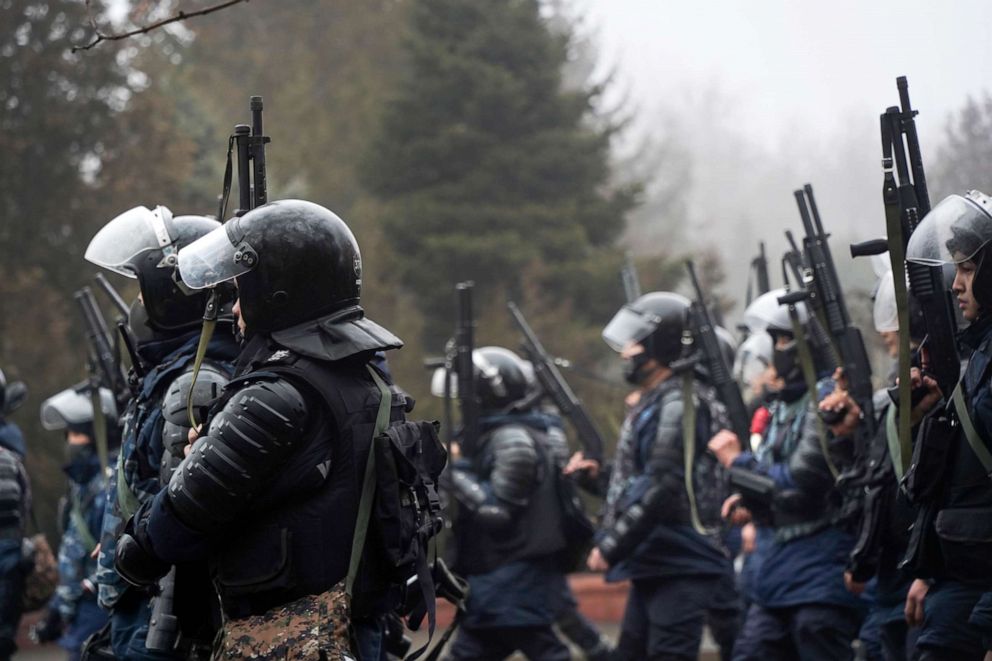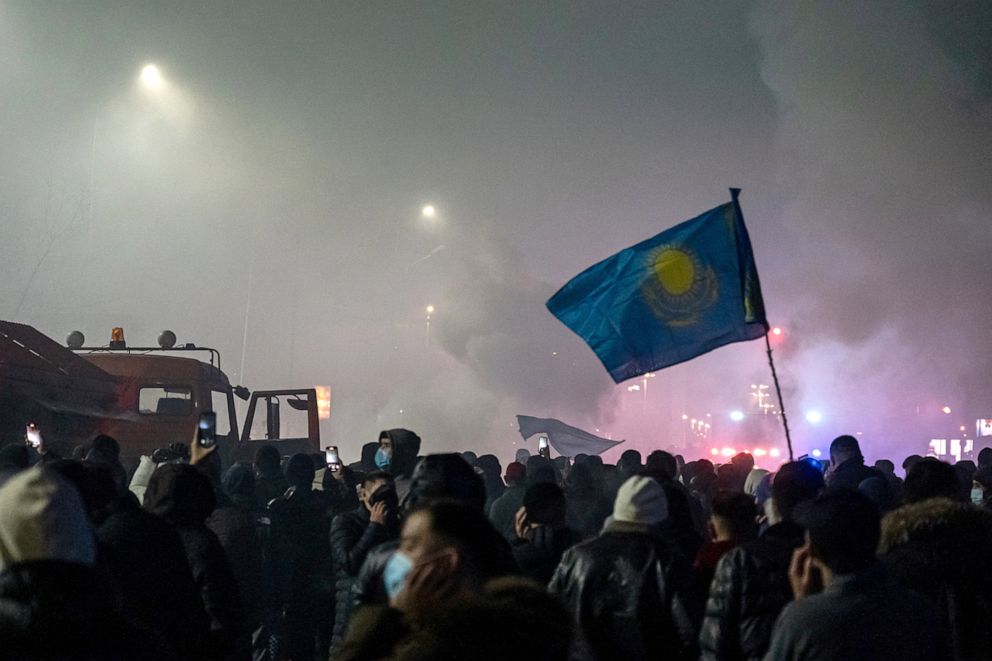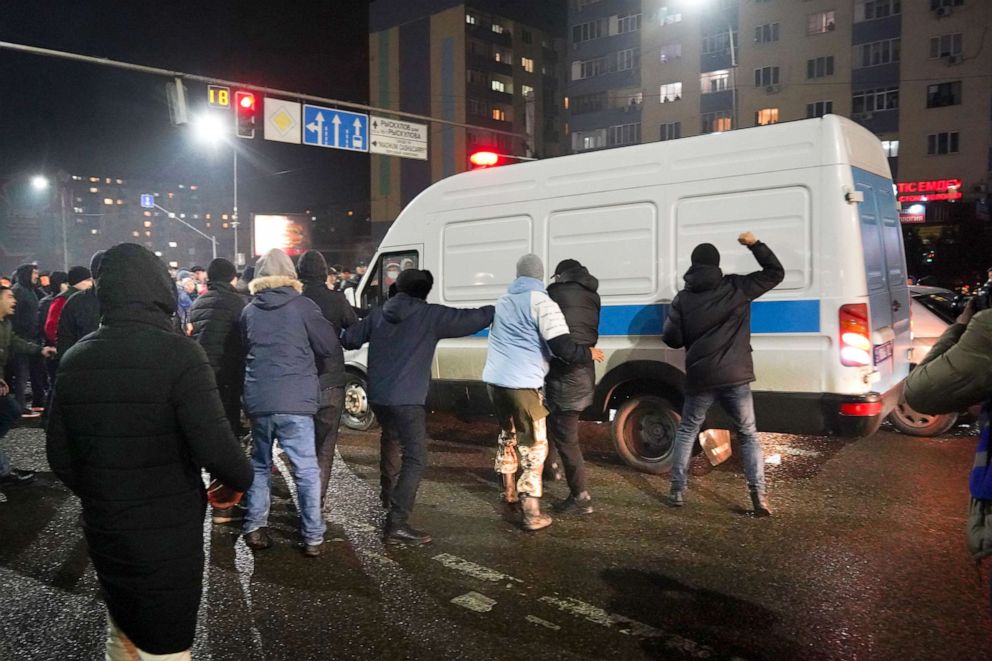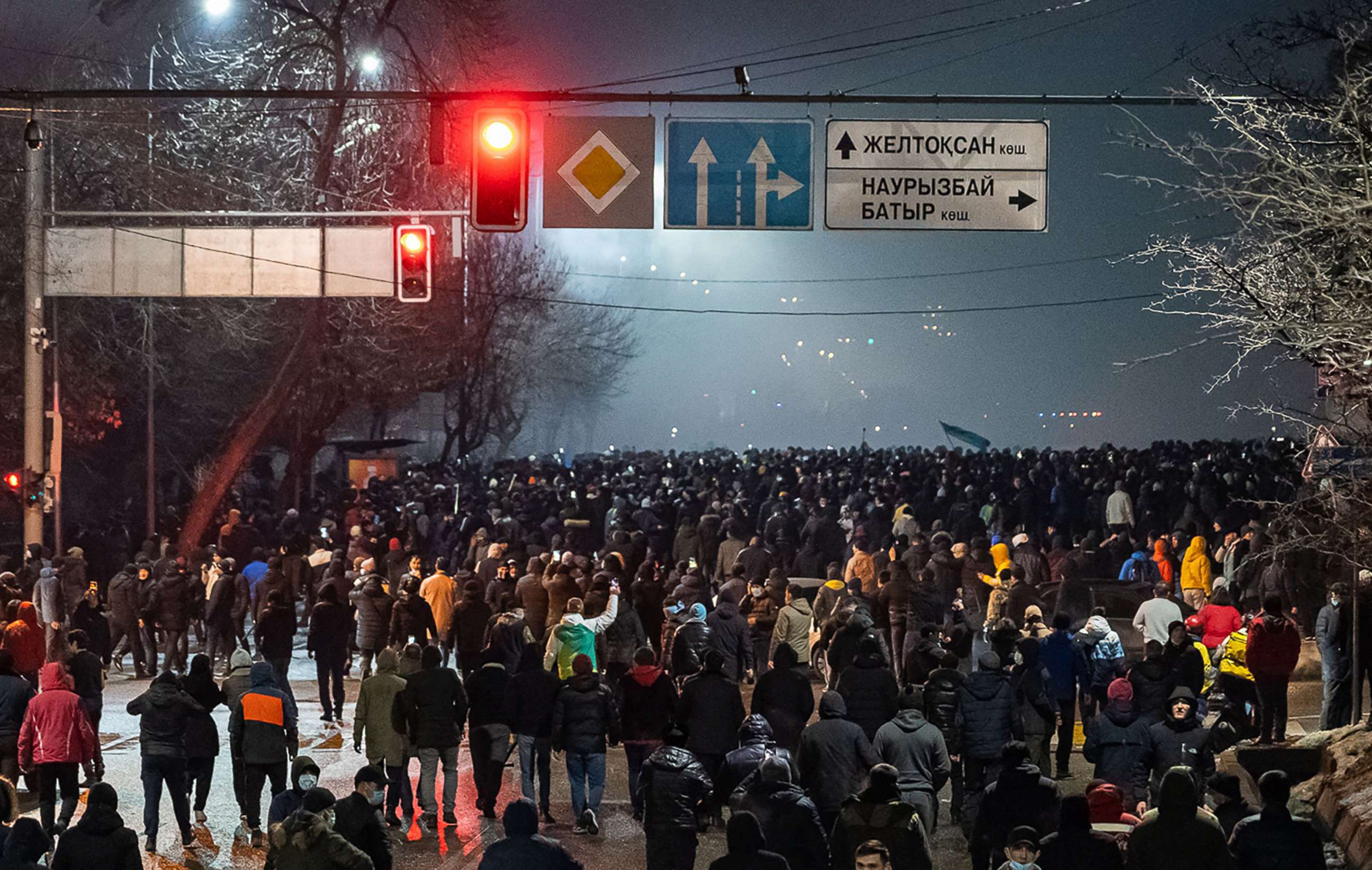Russian-led alliance says it will send 'peacekeepers' to Kazakhstan over protests
Russia-dominated CSTO alliance says it will send 'peacekeepers'.
Kazakhstan's president has appealed to a Russian-led military alliance for help in quelling the mass protests gripping the Central Asian country, promising to use force to put down the unrest.
President Kassym-Jopart Tokayev in a televised speech Wednesday said he had appealed to the Collective Security Treaty Organisation (CSTO), a security alliance of former Soviet countries dominated by Russia, to assist Kazakhstan with suppressing the protests which he claimed were being led by foreign terrorists.
The alliance has agreed to send a joint force of "peace-keepers" to Kazakhstan to help restore order, according to Armenia's prime minister, which is part of the alliance. Prime minister Nikol Pashinyan said the force would deploy to Kazakhstan for a "limited period," with the goal of "stabilising and normalising the situation in the country." The CSTO includes Russia, Armenia, Belarus and Kazakhstan's two neighbors, Kyrgyzstan and Tajikistan.
The announcement raises the prospect that foreign and potentially Russian troops may now help violently put down the unprecedented protests that have spread across Kazakhstan. First triggered by anger over a hike in fuel prices, they have escalated into a unprecedented challenge to the authoritarian regime of Nursultan Nazarbayev, that has dominated the former Soviet country for three decades and is a key ally of Russian president Vladimir Putin" target="_blank">Vladimir Putin.

Thousands of protesters on Wednesday stormed government buildings in several cities, including the largest city and former capital Almaty. There, protesters broke into the city administration office, set fire to other key buildings, and overran the airport. Security forces trying to violently disperse the crowds there and in several other cities appeared overwhelmed, with videos posted by local media showing protesters forcing military armored vehicles to flee and riding in police vehicles. Kazakhstan's interior ministry said at least eight police officers had been killed.
Authorities have declared a state of emergency in the country and internet access for the country was shut down on Wednesday.
Tokayev on Wednesday tried to calm the protests with concessions, reversing the fuel price rise, dismissing his cabinet and announcing he would take over from Nazarbayev as head of the national security council. But after the protests continued, late Wednesday Tokayev announced he was now seeking assistance from the Russian military alliance.

Tokayev claimed "international terrorist groups" had seized parts of Almaty, saying that should be considered an "act of aggression" and he was therefore invoking the CSTO's collective security guarantees.
"Considering the given terrorist groups are in essence international -- they've undergone serious training abroad -- their attack on Kazakhstan can and must be considered as an act of aggression. In connection with that, as set out by the treaty on collective security, I today am appealing to the heads of state of the CSTO for help," Tokayev said in his speech to officials.
The CSTO alliance also includes Belarus, Kyrgyzstan, Armenia and Tajikistan, but its driving force is Russia. The alliance's treaty guarantees assistance to members when their security or stability is threatened.
Tokayev made the announcement after calls with Putin and Belarus' leader Alexander Lukashenko.
After Tokayev spoke, authorities in Almaty said security forces were conducting a "counter-terrorist operation" in the city, warning residents to remain indoors.

Kazakhstan is a major energy exporter and its authoritarian government is an important ally for the Kremlin, which has a stable and productive relationship with Tokayev's government.
It is the second time in a year and a half that a long-time former Soviet leader of one of Russia's key neighbors has faced a massive uprising after the failed protests in Belarus year.
Before Tokayev's request for help on Wednesday, the Kremlin's spokesman Dmitry Peskov said Russia believed the crisis could resolved internally and warned others against outside intervention.

Dissatisfaction has been growing in Kazakhstan in recent years over worsening living standards and rising prices, and resentment at corruption among its ruling elite. The coronavirus pandemic has worsened those economic problems. The protests began four days ago in the Western oil region of Mangystau, sparked by a sharp rise in the price of liquefied natural gas (LNG) widely used in vehicles. But since Tuesday, unrest has spread across the country and broadened into a movement calling for an end to the regime built around Nazarbayev.
Kazakhstan has been dominated by Nazarbayev since it became independent after the fall of the Soviet Union, thirty years ago. In 2019, the ailing 81-year-old handed the presidency to the younger Tokayev, but Nazarbayev retained power behind the scenes by moving to become chairman of Kazakhstan's national security council.
Tokayev on Wednesday announced he was now heading the council, in an apparent concession. Tokayev did not mention Nazarbayev by name or refer to him, and it was unclear what it meant for Nazarbayev's future role in the country.
"And so I, as head of state and from today chairman of the Security Council, am determined to act with maximum harshness," Tokayev said in the address broadcast on state news channels. "Whatever happens I will stay in the capital," he said.




